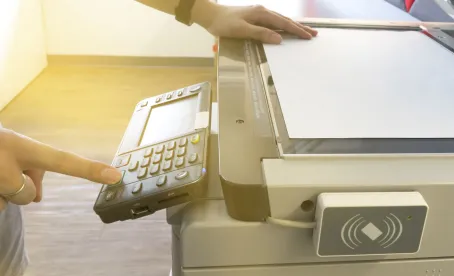In E&G, Inc. v. Mount Vernon Mills, Inc., No. 17-0218, 2019 WL 4032951 (D.S.C. Aug. 22, 2019), the District of South Carolina denied class certification because individualized issues—specifically, whether recipients had consented to receive the fax at issue—predominated.
Plaintiff E&G, Inc. (“E&G”), a hotel franchisee of Wyndham Worldwide Corporation (“WWC”), received a fax from WWC that included advertisements from certain approved WWC vendors, including defendant Mount Vernon Mills, Inc. (“Mount Vernon”). E&G’s franchise agreement with WWC allowed WWC to offer assistance with purchasing supplies and to provide lists of preferred suppliers. E&G provided WWC with its fax number and updated its contact information over the course of several years.
E&G alleged that the fax had been transmitted to more than 3,000 numbers and violated the TCPA because it contained unsolicited advertisements. (E&G filed separate class actions against three other vendors whose advertisements appeared in the same fax.) E&G moved to certify a class of all “persons or entities who were successfully sent” one or more of these faxes.
In evaluating E&G’s motion for class certification, the court considered whether it could determine, on a class-wide basis (i) that Mount Vernon had prior permission to send the fax and, if not, (ii) that Mount Vernon could rely on the franchise agreements that E&G and the putative class members had with WWC to establish prior express permission.
The court held that the communication between the franchisees and WWC during the course of the franchise agreements, not the franchise agreements themselves, would govern whether the franchisees had provided WWC with express permission to send the fax. Further, the court held that whether the “contact information changes” sent by E&G to WWC were “acts” that “constituted express permission” was “an issue that must be addressed” as to E&G and the other fax recipients. (The court noted that, in Gorss Motels, Inc. v. Safemark Sys., LP, 931 F.3d 1094 (11th Cir. 2019), another case filed by E&G regarding the same five-page fax, the Eleventh Circuit had held that E&G had given express permission to Safemark to receive the fax.)
The court concluded that the relationship between WWC and each fax recipient would need to be “assessed on an individualized basis, and there would need to be an individualized inquiry into any prior communications between them.” This individualized inquiry, it held, “makes class treatment of this action inappropriate.”
The decision is a helpful example of a court’s willingness to require a detailed analysis of the facts and circumstances surrounding each putative class member’s consent—and of how that analysis is an impediment to class certification.





 />i
/>i

